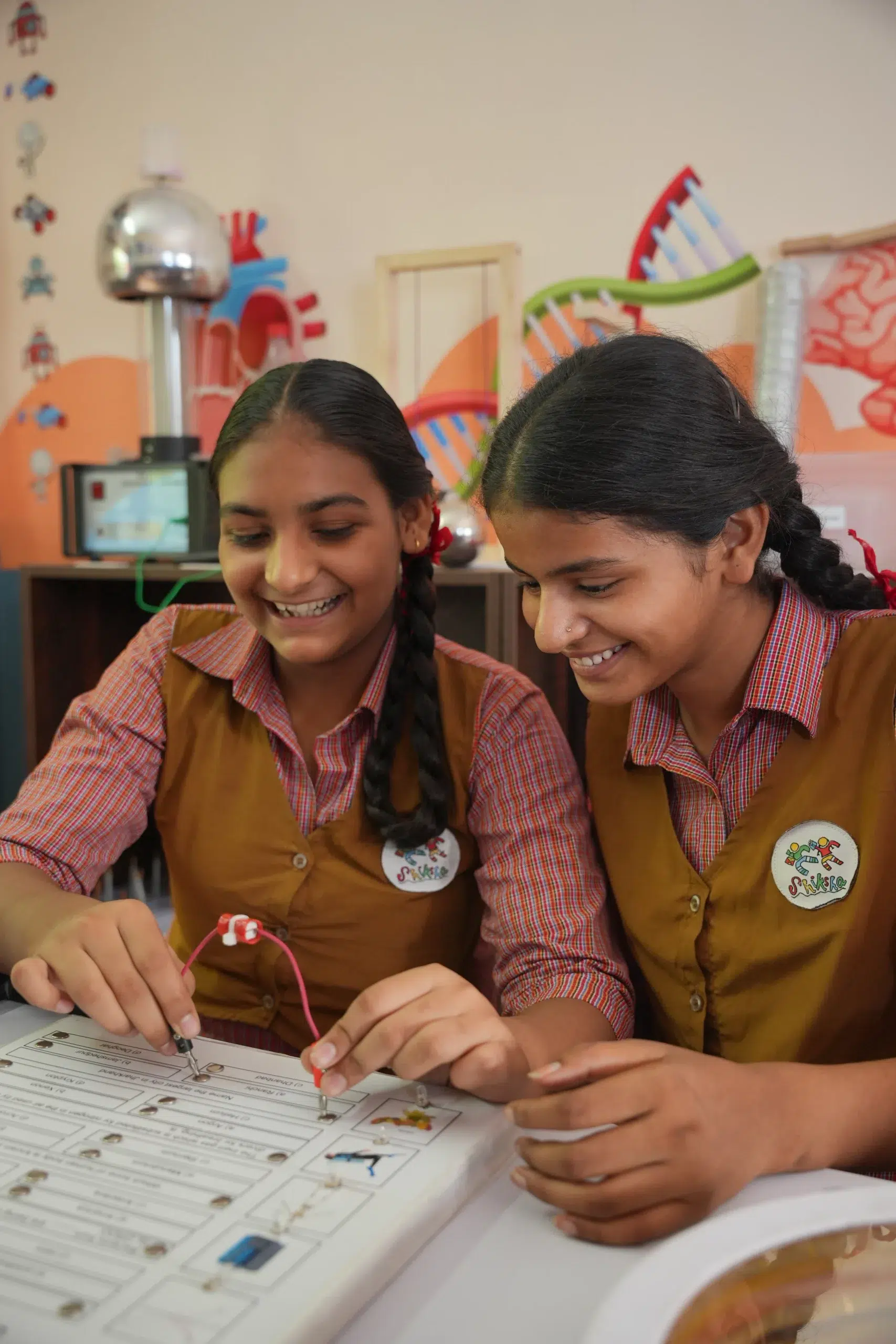We all know the magic of retail therapy. It has been scientifically proven that retail therapy often improves mood; 62% of people feel an improved mood after shopping for something. But, the retail industry has much more power than this.
Globally, the retail industry is worth approx. $31310.6 billion in 2024 at a compound annual growth rate (CAGR) of 8.5%. India’s retail industry is considered to be the 4th largest retail sector in the world and is estimated to become a $2 Tn by 2032 with a growth at 25% CAGR. Looking at the magnitude of the retail industry, it is important to note that as much as this sector helps its consumers to live a comfortable life, this industry is also considered as a reservoir of Corporate Social Responsibility, because of its close relationship with the society.
Therefore, in this light, let’s explore how the retail industry CSR and women empowerment can blend in for giving underserved women of India an opportunity to become financially independent and live a life with dignity.
Opportunities for Female Entrepreneurs in India
There is no denying that India’s business landscape has seen a surge of Indian businesswomen who are walking shoulder to shoulder when it comes to leading magnanimous business empires just like their male counterparts. India has between 13.5 to 15.7 million women-owned businesses, creating direct employment for 22 to 27 million people. With targeted initiatives, this could grow to 31.5 million businesses by 2030, boosting direct employment by 50 to 60 million.
However, the availability of opportunities for rural women businesses in India are still limited, as constraints like lack of education, lack of resources and business support from banks, no access to digital literacy and financial literacy still fog the path for these women to enter the mainstream female entrepreneurship in India.
SDG 5: Retail Industry CSR and Women’s Empowerment
The current scenario of the retail industry seems to be promising as many international and domestic brands are focusing on expanding their operations in India. Brand like Swedish furniture giant IKEA plans to invest INR 850 crore (US$ 102.41 million) in expanding its Indian operations, while H&M will introduce its home décor line through its website and Myntra next month. UAE-based Lulu Group is investing INR 2,000 crore (US$ 240.96 million) in a new mall near Ahmedabad.
Additionally, Reliance Industries is poised to sell an 8-10% stake in Reliance Retail Ventures Ltd to fund further expansion and prepare for an IPO.
As the industry evolves, strategically aligning retail CSR and women empowerment initiatives to foster an inclusive framework will enable rural women in India to access opportunities for learning, earning, and thriving.
But how?
- By investing in vocational training
Vocational training for the underserved communities is no more just an option, but a requirement that must be collectively supported by government, corporates and social organisations. Investing in vocational training for women and young girls, such as skills in tailoring and garment manufacturing, can provide a significant boost to their prospects. Such training not only equips them with the expertise needed to start their own businesses or secure employment but also fosters sustainable futures for themselves and their communities. By offering these opportunities, retail CSR initiatives can help create pathways to economic independence and community development.
- By supporting small retail businesses
When it comes to skills and talent, rural India has been considered as a reservoir and all they await is an opportunity, a platform where they can showcase their skills and earn a sustainable livelihood. Retail CSR programs can play a transformative role by providing these businesses with essential support and oversight. This includes training in business management, strategic logistics and implementation practices. Such support enables these businesses to expand, create additional job opportunities for women, and contribute to the local economy.
By investing in these areas, retailers can help build a robust ecosystem where women are not only integrated into the workforce but are also celebrated for their entrepreneurial contributions, thereby contributing to economic growth and gender equality in their communities.
- By promoting workshops of digital and financial literacy
By organising targeted training programmes and workshops, retailers can teach women essential skills such as managing finances online, making secure transactions and using digital tools effectively. Providing access to technology, including computers and smartphones, is another crucial step, as it helps bridge the digital divide and ensures women in underserved areas can engage with the digital economy.
Additionally, partnerships with financial institutions can offer workshops on budgeting, saving and understanding credit, facilitating access to tailored financial products and services.
Support for women entrepreneurs is equally vital and with CSR programmes partnered with social development organisations like Smile Foundation, the retail industry can offer specific training on e-commerce, digital marketing and financial management.
Furthermore, the Retail CSR activities can also provide mentorship programnes that connect women with experienced professionals and provide valuable advice and networking opportunities, while awareness campaigns can highlight the importance of these skills.
Smile Foundation: Retail Industry CSR and Women Empowerment
Smile Foundation’s programme Swabhiman is well tailored to support retail CSR initiatives to integrate women into the retail ecosystem through proper skill training and business job opportunities that further enhances their practical experience, boosting their confidence and financial independence.
Over the past two decades, we have been committed to grassroots development across India through our Lifecycle Approach. This comprehensive strategy ensures that women and their communities benefit from quality education, vocational training, and access to healthcare, enabling them to overcome generational economic deprivation and achieve sustainable progress.
Partnering with Smile Foundation offers CSR initiatives the opportunity to not only support women’s empowerment but also to challenge and transform entrenched beliefs about women’s capabilities. We are dedicated to holistic national development, recognising that isolated efforts can only achieve so much. By collaborating through CSR partnerships, we can align with private organisations combined with government initiatives, accelerating progress towards the Sustainable Development Goals, and making India more developed in the coming years.









